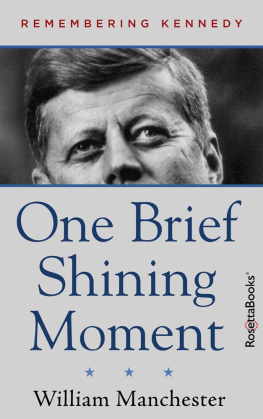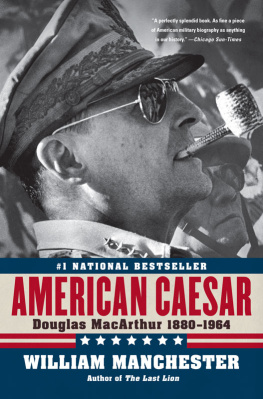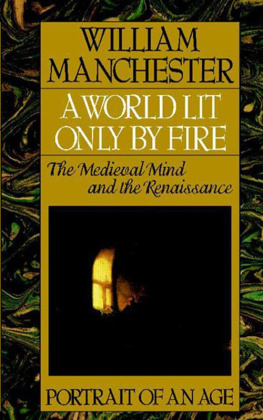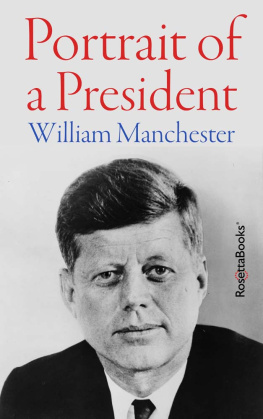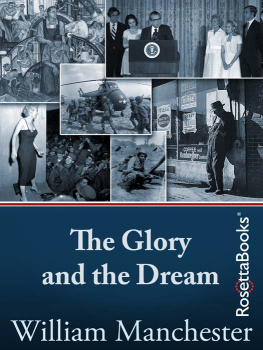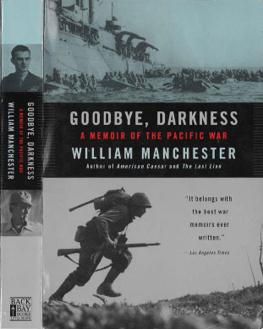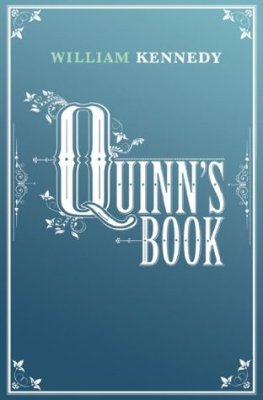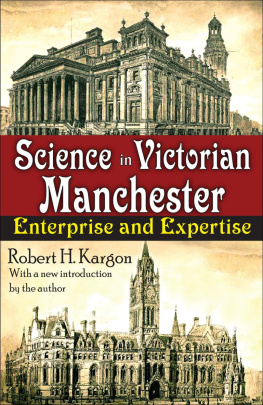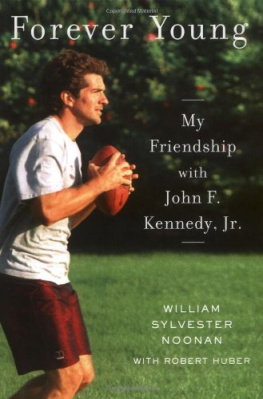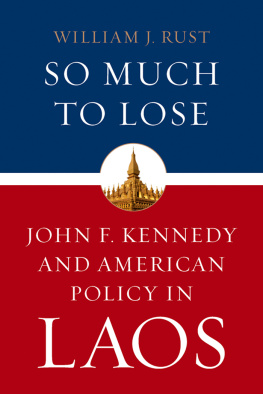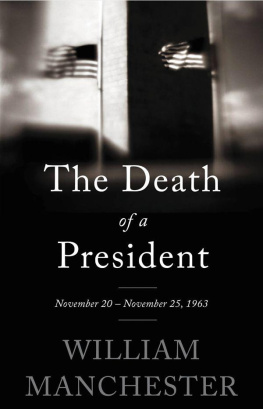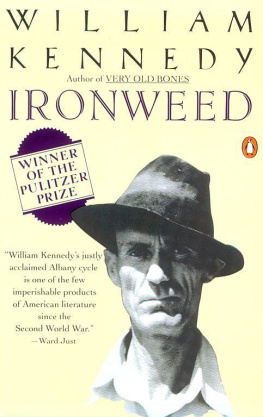AUTHORS NOTE
This is not a scholarly work. It is instead a recollection of high summer written in the autumn of life, a tribute to a man I knew and an inquiry into why his memory should be cherished. Readers searching for objective appraisals of Kennedy must look elsewhere. I was not and am not entirely uncritical of his performance. The race to put a man on the moon was, I thought, completely unjustified; my argument was that the money would be better spent clearing slums. You will find omissions. This book is not a history. It is, quite simply, a book about him. In my opinion he was an exceptional man. Denied his chance at greatness, he was cut down after 1,037 days in the White House. Nevertheless, he left an enduring legacy: an example of how a life should be lived. His story may be read for both pleasure and profit.
He had as many names as he had identities. At his confirmation he became John Fitzgerald Francis Kennedy. Most American Catholics abandon their confirmational names, and he was no exception. To friends and relatives he was simply Jack. His fellow PT-boat skippers (Peter Tares) in the Solomons called him Shafty because of his frequent gripe, Ive been shafted, which, emerging from his Boston/Harvard euphonium, was transformed into shahfted. In 1946 he became, as he himself wryly put it, the Candidate. Congressman Kennedy followed and was, after six years, succeeded by Senator Kennedy; eight more years passed and on January 20, 1961, he became President Kennedy. His wife called him Bunny; his sister Eunice and his brother Bob, in serious moments, Johnny. The Pentagon knew him as Chiefshort for Commander in Chief. To his staff he was sometimes the Tiger; to headline writers, JFK. With friends, the situation determined the form of address. If his only companion was an old acquaintance, he would be Jack, but if an outsider or even a servant entered, he became Mr. President.
Though I first met him in 1946, and was frequently alone with him during his White House years, with Kenneth ODonnell, his appointments secretary, or another presidential aide, phoning to tell me when to be where, I have tried to remain offstage as much as possible. I was, after all, a mere spectator. Sometimes I have donned the traditional cloaks of anonymity (The President told a friend; Kennedy said privately) but my chief device is the second person (If you entered the Oval Office that morning, you learned). The you may be the author of this book, or ODonnell, or Dave Powers, or Arthur Schlesinger, or one of Kennedys sisters, or any of nearly 150 other men and women who, over the years, have shared with me their recollections and observationssome of which have been previously published. My purpose here is to re-create the past for the reader. If I have been successful, you should feel not only that these events happened, but that they are happening as your eye roves down the page, and that you, younot the author or any other sourceare actually there.
My debt to these sharers of memories and thoughts is so immense that I shall not try to sort out and specify my gratitude. Instead, I set down their names here, a roll of gallant and admirable people. They are: members of President Kennedys familyJoseph P. Kennedy, Jacqueline Kennedy, Robert F. Kennedy, Edward M. Kennedy, Eunice Kennedy Shriver, Jean Kennedy Smith, and Joe and Ann Gargan; the Presidents relatives by marriageHugh Auchincloss, Janet Auchincloss, Ethel Kennedy, Joan Kennedy, Stanislaus Radziwill, Sargent Shriver, and Stephen Smith; school, college, and navy friendsK. LeMoyne Billings, Paul B. Fay, Jr., James A. Reed, George Barney Ross; presidential staff, members of the Kennedy administration, political advisers and associatesJohn Bailey, George Ball, Charles E. Bohlen, Henry Brandon, Jerry Bruno, McGeorge Bundy, George G. Burkley, Christine Camp, Chester V. Clifton, John B. Connally, Jr., Michael Cook, C. Douglas Dillon, Ralph Dungan, Henry H. Joe Fowler, John Kenneth Galbraith, Mary Gallagher, Barbara Gamarekian, Richard N. Goodwin, Jim Greenfield, Edwin O. Guthman, Milton Gwirtzman, Averell Harriman, Fred Holdborn, U. Alexis Johnson, Nicholas deB. Katzenbach, Evelyn Lincoln, John Macy, Dean F. Markham, John McCone, Godfrey McHugh, George J. McNally, Jack McNally, Robert S. McNamara, Bill D. Moyers, Daniel B. Moynihan, Angela Novello, Lawrence F. OBrien, P. Kenneth (later Kenneth P.) ODonnell, Mary Ann Orlando, David Powers, Timothy J. Reardon, Jr., George Reedy, Dean Rusk, Pierre Salinger, Arthur M. Schlesinger, Jr., Tazewell Shepard, Theodore C. Sorensen, Arthur Sylvester, Andrew T. Hatcher, Llewellyn Thompson, Nancy Tuckerman, Pamela Turnure, Sue Vogelsinger, Jerome B. Wiesner, and Willard Wirtz; friends, associates, writers, and commentatorsLetitia Baldridge, Charles Bartlett, Martha Bartlett, Carmine Bellino, Benjamin C. Bradlee, Tony Bradlee, David Brinkley, Sir Denis W. Brogan, James M. Burns, Jan Burns, Douglass Cater, Richard Cardinal Cushing, Angier Biddle Duke, Robin Duke, David Hackett, Walter Lippmann, Joe McCarthy, Mary McCrory, Bunnie Mellon, Walter I. Bill Pozen, Richard H. Rovere, Eric Sevareid, Mrs. Tazewell Shepard, Hugh Sidey, Merriman Smith, Mrs. Potter Stewart, Maxwell Taylor, William Walton, and Theodore H. White; Washington dignitaries and acquaintancesNicole Alphand, Hale Boggs, Jack S. Brooks, Joan Douglas, William O. Douglas, Dwight D. Eisenhower, J. William Fulbright, Arthur J. Goldberg, J. Edgar Hoover, Hubert H. Humphrey, Mrs. Lyndon B. Johnson, Mike Mansfield, John W. McCormack, Sir David Ormsby-Gore, Elizabeth Pozen, Albert Thomas, John W. Walsh, Earl Warren, Byron White, and Ralph Yarborough; Secret Service agentsGerald A. Behn, Gerald S. Blaine, Bob Foster, Bill Greer, Clinton J. Hill, Roy Kellerman, Sam Kinney, and Emory P. Roberts; and members of the Air Force One crew and the Kennedy household staffs in the White House and the Hyannis Port CompoundJoseph Ayres, Rita Dallas, Joseph D. Giordano, Lewis Hanson, Jacqueline Hirsch, Providentia Marades, George D. Miller, John J. Muggsy OLeary, James Sasser, Maude Shaw, James Swindal, George Thomas, and J. Bernard West.
None of the above, of course, is answerable for a word in this book. The responsibility is mine alone.
I am profoundly grateful to my editor, Roger Donald, whose suggestions and advice have always been invaluable, but in this book were absolutely indispensable; to Ellen Panarese, for her help in picture research; to Alan Goodrich and the staff of the John F. Kennedy Library in Boston; to Irwin Glusker, who designed the book; andlast but never leastto Melissa Clemence, my copy editor, who had better not predecease me.

